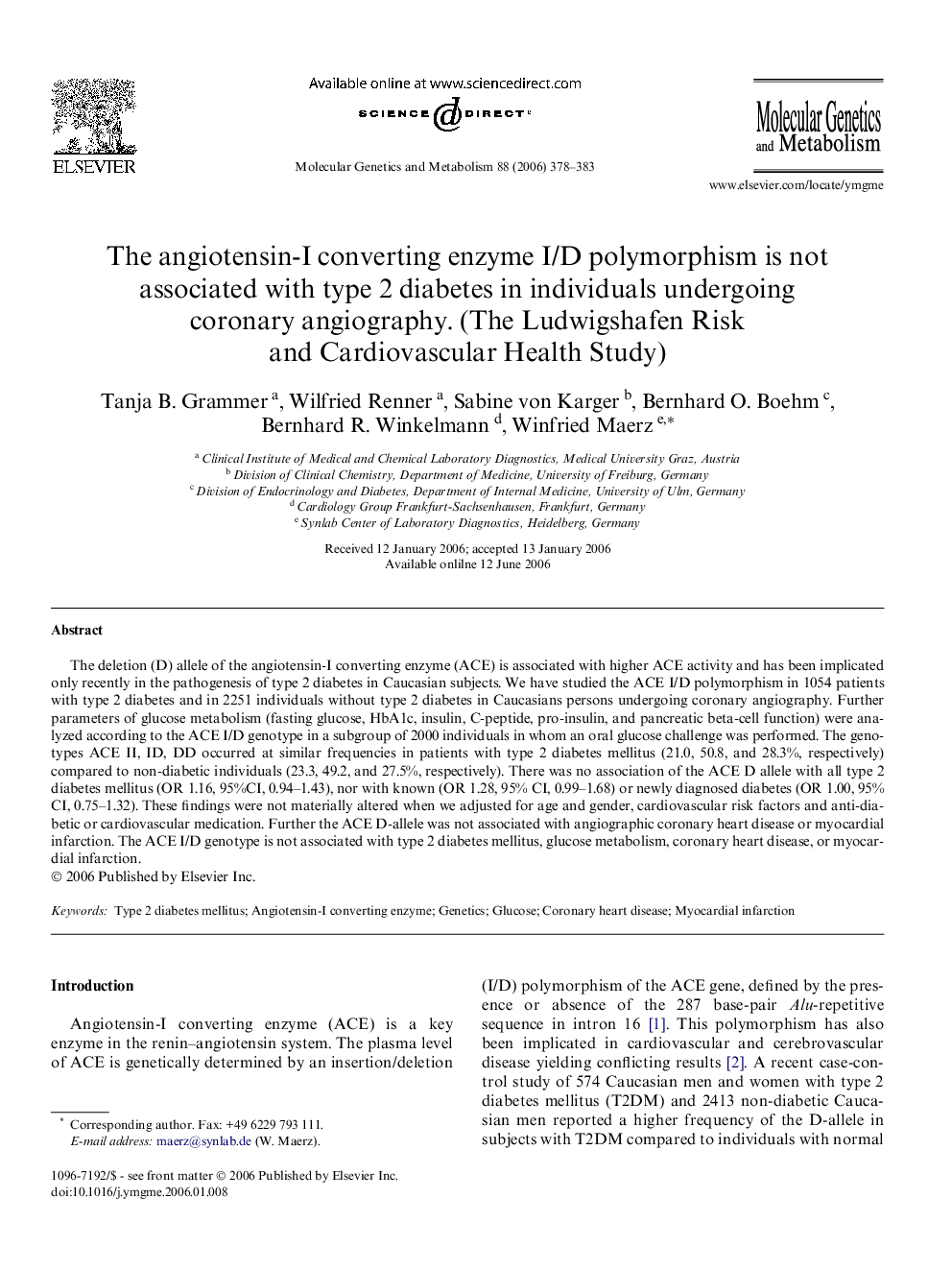| Article ID | Journal | Published Year | Pages | File Type |
|---|---|---|---|---|
| 2000372 | Molecular Genetics and Metabolism | 2006 | 6 Pages |
The deletion (D) allele of the angiotensin-I converting enzyme (ACE) is associated with higher ACE activity and has been implicated only recently in the pathogenesis of type 2 diabetes in Caucasian subjects. We have studied the ACE I/D polymorphism in 1054 patients with type 2 diabetes and in 2251 individuals without type 2 diabetes in Caucasians persons undergoing coronary angiography. Further parameters of glucose metabolism (fasting glucose, HbA1c, insulin, C-peptide, pro-insulin, and pancreatic beta-cell function) were analyzed according to the ACE I/D genotype in a subgroup of 2000 individuals in whom an oral glucose challenge was performed. The genotypes ACE II, ID, DD occurred at similar frequencies in patients with type 2 diabetes mellitus (21.0, 50.8, and 28.3%, respectively) compared to non-diabetic individuals (23.3, 49.2, and 27.5%, respectively). There was no association of the ACE D allele with all type 2 diabetes mellitus (OR 1.16, 95%CI, 0.94–1.43), nor with known (OR 1.28, 95% CI, 0.99–1.68) or newly diagnosed diabetes (OR 1.00, 95% CI, 0.75–1.32). These findings were not materially altered when we adjusted for age and gender, cardiovascular risk factors and anti-diabetic or cardiovascular medication. Further the ACE D-allele was not associated with angiographic coronary heart disease or myocardial infarction. The ACE I/D genotype is not associated with type 2 diabetes mellitus, glucose metabolism, coronary heart disease, or myocardial infarction.
